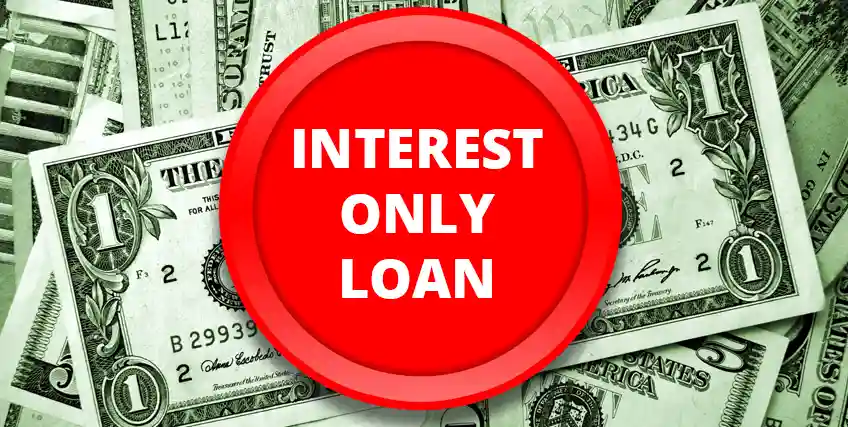How Interest Rates Affect Real Estate Loans in Today’s Market
April 15, 2025 | Last Updated on: April 15, 2025

The real estate market has always been a vital pillar of economic stability and growth in the U.S. Whether it’s commercial property or single-family homes, property ownership remains a key financial goal for many small business owners. However, in recent years, fluctuating interest rates have added a layer of uncertainty, making it harder for many to navigate the real estate loan and property financing landscape.
As we move through 2025, it's clear that real estate interest rates today are playing a more critical role in shaping real estate decisions than ever before. Many small business owners are wondering whether it’s the right time to invest in real estate, refinance an existing mortgage loan, or hold off until conditions stabilize.
In this article, we will explore the current state of the housing market and its challenges, what real estate loans are, and how current real estate interest rates work in this context. We will also discuss how today’s mortgage rates are impacting real estate borrowing decisions
The Housing Market Industry and Its Challenges
Over the past few years, the housing market has gone through a whirlwind of highs and lows. After a surge in demand during the pandemic, which saw home prices shoot up due to low interest rates, the market began cooling off in 2023. That cooling effect continued into 2024 and is continuing in the present year, driven largely by rising mortgage rates and tightened lending conditions.
According to the National Association of Realtors (NAR), home sales in early 2024 dropped by nearly 2% compared to the previous quarter. This decline reflects not just consumer hesitation but also the direct consequences of increased borrowing costs and stricter loan-to-value (LTV) ratios for real estate loans.
Inventory also remains a persistent issue. With fewer homes available and higher financing costs, many potential homebuyers and first-time homebuyers are staying on the sidelines. For small business owners looking to invest in property either for a primary residence or as a business asset, this means tougher competition, increased closing costs, and reduced affordability. High property taxes and additional expenses such as homeowners’ insurance and maintenance further complicate budgeting.
What Are Real Estate Loans and Interest Rates?
Real estate loans, often referred to as mortgage loans or home loans, are financial agreements that allow individuals or businesses to purchase property by borrowing money from a lender. These loans come with a repayment schedule and an interest rate, which is the cost you pay to borrow the money.
There are several types of real estate loans:
- Fixed-rate mortgage: Interest remains the same throughout the loan term, providing predictability and stability for long-term planning.
- Adjustable-rate mortgage (ARM): Interest rates can change based on market conditions, often starting lower than fixed rates but with the risk of increasing later.
- FHA and VA loans: Backed by government agencies, often with lower down payment requirements and more flexible credit score qualifications.
- Jumbo loans: Used for loan amounts that exceed conforming loan limits, typically requiring excellent credit history and a low debt-to-income ratio.
- Conventional loans: Not backed by the government, requiring a strong credit score, consistent income, and a solid credit history.
Interest rates on commercial real estate loans are generally higher, often ranging from 10% to 20%, depending on the creditworthiness, credit report, and credit score of the borrower and the loan program selected. Borrowers should also consider the effect of mortgage insurance, origination fees, and whether they’re eligible for any upfront cost reductions or mortgage rate discounts.
How Interest Rates Affect Real Estate Loans in Today’s Market
Real estate loan interest rates today have a ripple effect on every aspect of real estate borrowing. Here’s how they impact small business owners and their ability to access various real estate loan options:
Increased Cost of Borrowing
When mortgage rates rise, so does the monthly mortgage payment. For example, a $500,000 commercial property loan at a 6% interest rate over 20 years would cost significantly less in monthly payments than the same loan at 8%.
The higher payment amount can deter potential borrowers or strain cash flow for businesses already managing tight margins. Using a mortgage calculator can help estimate payments based on loan type and term. Additionally, costs such as mortgage insurance and closing costs can further raise the total out-of-pocket expenses.
Lower Loan Eligibility
Lenders evaluate a borrower’s debt-to-income ratio, credit score, and loan-to-value (LTV) when approving real estate loans. As mortgage rates increase, so do monthly payments, which can disqualify borrowers who may have otherwise qualified under lower rates.
A lower credit score may also lead to a higher annual percentage rate (APR), impacting overall affordability. Furthermore, lenders may require more comprehensive disclosures and tighter underwriting, especially for non-conventional or jumbo loans.
Shift in Buyer Behavior
Higher interest rates tend to cool down demand. Many homebuyers are choosing to wait, hoping for lower rates. Others are opting for adjustable-rate mortgages with the intention to refinance later if refinance rates drop.
Some are even buying mortgage points (discount points) to lock in a lower APR for the life of the loan. This behavior shift can also extend to property type, with buyers leaning toward more modest homes to match their budget.
Impact on Refinancing Options
Refinancing an existing home loan becomes less appealing when current mortgage rates are high. Borrowers who refinanced during the low-rate period in 2021 are now hesitant to refinance again unless they can secure a lower interest rate or tap into home equity through a cash-out refinance.
Rate lock options and mortgage rate lock strategies have become important tools for timing the market. In some cases, homeowners might consider changing their loan type from adjustable to fixed rate to gain long-term stability.
Shrinking Real Estate Investment Returns
Investors who rely on leveraging and borrowing to purchase multiple properties are seeing thinner returns. Higher interest costs reduce profit margins over the life of the loan, especially for properties that aren't generating sufficient rental income.
Commercial property buyers must also consider property taxes, homeowners’ insurance, and maintenance expenses in their ROI calculations. Choosing the best mortgage becomes crucial to maintain a healthy cash flow, particularly in sectors like multi-family or mixed-use developments.
Market Uncertainty and Volatility
With the Federal Reserve maintaining a cautious approach to rate cuts, uncertainty remains a significant challenge. Many borrowers are opting for fixed-rate mortgage options or exploring the different lender websites to understand their options better.
Others are reviewing their credit reports and working with loan officers to improve their credit score in hopes of qualifying for better rates. During uncertain times, locking in today’s mortgage rates can offer peace of mind for borrowers.
Commercial Real Estate Faces Unique Pressure
Retail and office properties face additional hurdles. For example, a local bakery looking to expand into a larger storefront may find that a 7.5% commercial mortgage interest rate pushes monthly payments beyond projected revenues. In such cases, consulting a loan officer or exploring SBA or FHA loan programs becomes essential.
For business owners considering expansion, comparing various loan options and understanding the true cost over the life of the loan, including origination fees, insurance, and maintenance, is key to long-term success.
Conclusion
In today's market, current real estate interest rates significantly influence the real estate journey for small business owners and homebuyers alike. From real estate loan amount limitations to the importance of mortgage insurance and disclosures, understanding the details can make or break a deal.
If you're considering homeownership, refinancing, or property investment, it’s essential to compare various real estate loan programs, review your credit report, and talk to a qualified loan officer. Evaluate options such as jumbo loans, FHA loans, and VA loans. Lock in favorable terms with a rate lock and keep tabs on today’s mortgage rates with resources like mortgage calculators.
Frequently Asked Questions About Real Estate Loans
How do real estate interest rates today impact my monthly mortgage payment?
Higher interest rates increase your monthly mortgage payment by raising the cost of borrowing. For example, a 1% rise in interest on a $400,000 loan could raise your monthly payment by several hundred dollars over a 30-year loan term.
Should I choose a fixed-rate or adjustable-rate mortgage (ARM) for a real estate loan?
A fixed-rate mortgage provides stability with the same payment amount over the life of the real estate loan, while an ARM usually offers lower initial rates but can fluctuate based on market conditions. The best choice depends on your financial situation and how long you plan to keep the property.
Can I still qualify for a home loan with a low credit score?
Yes, but your loan options may be limited. FHA loans are often ideal for borrowers with lower credit scores. You may also face a higher annual percentage rate (APR) and larger down payment requirements.
What is a rate lock, and should I use one?
A mortgage rate lock guarantees your interest rate for a specific period, protecting you from market volatility while your loan is being processed. It’s a smart move when you expect rates to rise before closing.
What is the difference between conventional loans and government-backed loans like FHA or VA?
Conventional loans aren’t insured by the government and usually require higher credit scores and down payments. FHA loans offer more flexibility with lower credit score requirements, while VA loans (for eligible veterans) often require no down payment or mortgage insurance.





